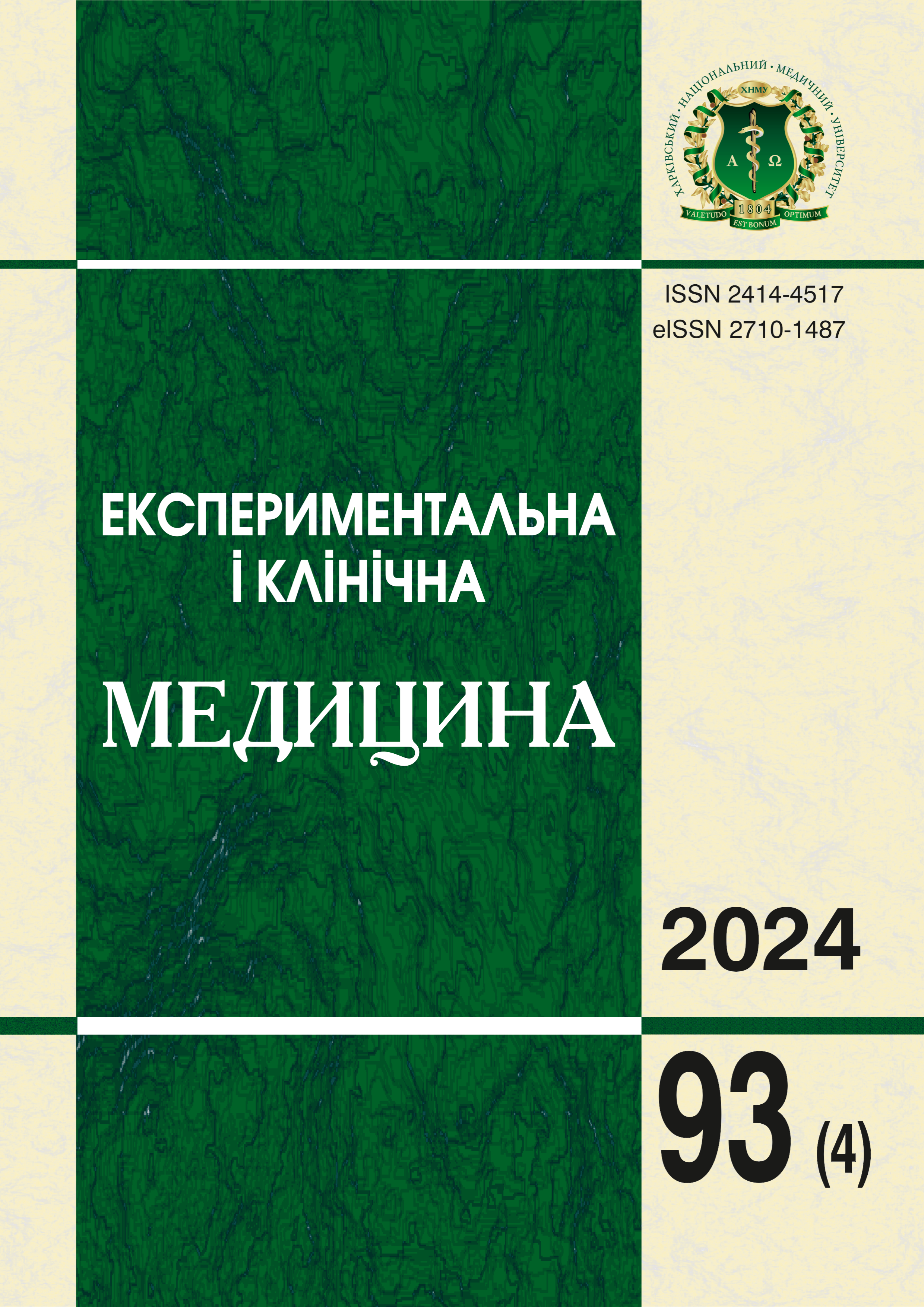Анотація
З метою дослідження було вивчення резилієнтності родича хворого на деменцію та ставлення родича до захворювання члена родини було обстежено 153 родича, які спільно проживали та/або здійснювали догляд за пацієнтами. Було проведене клініко-психопатологічне дослідження (з використанням структурованого інтерв’ю), та психодіагностичне (з використанням шкали резилієнтності Коннора-Девідсона-10, в адаптації Ассонова Д.О., та шкали структурованого інтерв’ю для визначення ставлення членів родини до хвороби (психіатричного діагнозу) у родича). Дослідження виявило, що розлади адаптації асоційовані зі значним зниженням резилієнтності у родичів хворих на деменцію. Найвищими рівнями резилієнтності характеризувалися родичі з відсутністю ознак психічних порушень. Значуще нижчий рівень резилієнтності був виявлений у родичів, у яких були наявні ознаки психічної дезадаптації, і найнижчий – у родичів з розладом адаптації. Родичам хворих на деменцію з відсутністю ознак психічних порушень був притаманний переважно адекватний тип ставлення до психічного захворювання у родича, при істотно меншій виразності драматизуючого і деструктивного його типів. Схожа картина спостерігалась серед осіб з ознаками психічної дезадаптації. Натомість, серед родичів з клінічно окресленими розладами адаптації домінували драматизуючий і деструктивний типи ставлення до хвороби родича, за мінімальною представленістю адекватного типу. Показник резилієнтності прямо корелював з виразністю адекватного ставлення до захворювання (кореляції помірної сили, rS=0,522), і зворотно корелював з виразністю неконструктивних типів ставлення до хвороби у родича: негативним (деструктивним) (кореляції помірної сили, rS=-0,386) та драматизуючим (кореляції слабкі, rS=-0,272).
Ключові слова: психічна дезадаптація, розлад адаптації, тривога, депресія, інтерпсихічні і інтрапсихічні чинники.
Посилання
Tyrrell M, Fossum B, Skovdahl K, Religa D, Hillerås P. Living with a well-known stranger: Voices of family members to older persons with frontotemporal dementia. Int J Older People Nurs. 2020;15(1):e12264. DOI: 10.1111/opn.12264. PMID: 31577392.
GBD 2019 Dementia Forecasting Collaborators. Estimation of the global prevalence of dementia in 2019 and forecasted prevalence in 2050: an analysis for the Global Burden of Disease Study 2019. Lancet Public Health. 2022;7(2):e105-25. DOI: 10.1016/S2468-2667(21)00249-8. PMID: 34998485.
Ogorenko VV, Shusterman TY, Seslavska YeL. Psychic maladjustment in relatives of patients with alzheimer's type dementia. Journal of Marine Medicine. 2023;98(1):197-205. Available at: http://www.herald.org.ua/wp-content/uploads/2023/04/01-23.pdf [in Ukrainian].
Global status report on the public health response to dementia. WHO; 2021. Available at: https://www.who.int/multi-media/details/global-status-report-on-the-public-health-response-to-dementia [accessed 31 Dec 2024].
Melnyk VM. Ethic and legal aspects of scientific trials on novel medicines. Ukrainian Journal of Chemotherapy. 2002;13(1):11-5. Available at: http://www.ifp.kiev.ua/doc/journals/uhj/02/pdf02-1/11.pdf [in Ukrainian].
Assonov DO. The cognitive and emotional components of resilience in war veterans with traumatic brain damage in the long period (psychocorrection, forecasting). [Dis PhD, spec. 19.00.04 – Medical Psychology]. Kyiv: Bogomolets National Medical University; 2022. 219 p.
Markova MV, Driuchenko MO. Features of parent-child interaction in families where the mother suffering from paranoid schizophrenia (phenomenology, mechanisms of development, psychological correction). Fundamental and applied researches in practice of leading scientific schools. 2018;25(1):77-88. Available at: https://surl.li/kgkrze [in Ukrainian].
AbdulRaheem Y. Statistics in medical research: Common mistakes. J Taibah Univ Med Sci. 2023;18(6):1197-9. DOI: 10.1016/j.jtumed.2023.04.004. PMID: 37234723.

Ця робота ліцензується відповідно до Creative Commons Attribution-NonCommercial-ShareAlike 4.0 International License.

